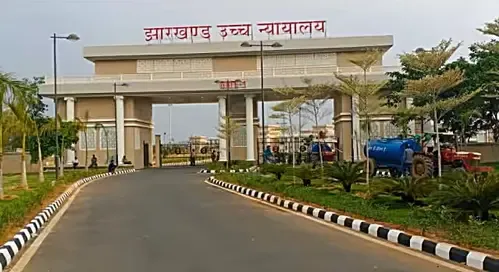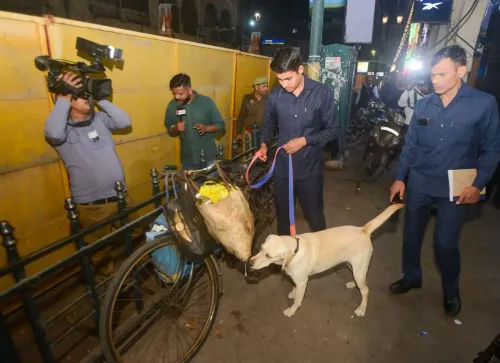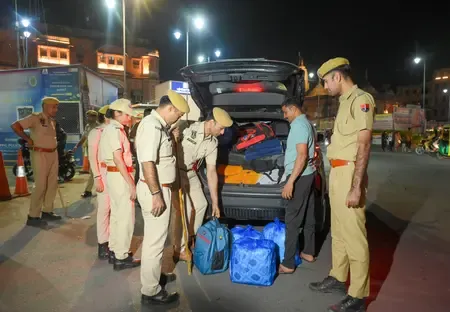Will the Jharkhand HC Lift the Ban on Sand Mining?

Synopsis
Key Takeaways
- The Jharkhand High Court has upheld the ban on sand mining auctions.
- The ban remains until PESA rules are notified by the state government.
- Local governance rights are central to the court's ruling.
- PESA rules are critical for managing natural resources in scheduled areas.
- The next court hearing is on October 9.
Ranchi, Sep 24 (NationPress) The Jharkhand High Court has firmly stated that the ban on the auction and distribution of sand ghats, along with other minor minerals in the state, will remain in effect until the government publishes the rules mandated by the Panchayat (Extension to Scheduled Areas) Act, 1996 (PESA).
A bench comprising Chief Justice Tarlok Singh Chauhan and Justice Rajesh Shankar, during a hearing on Wednesday, denied the government’s request to lift the ban.
The court noted that the government has not fulfilled its obligation to draft and announce the PESA rules, despite numerous directives.
“You must notify the rules, and only then will we permit the auction,” remarked the Chief Justice.
However, the court agreed to the state government’s plea to lift the stay on the auction of sand ghats and issued a notice to the original petitioner. The next hearing is set for October 9.
Advocate General Rajiv Ranjan informed the court that a draft of the PESA rules is already prepared and feedback has been solicited from various departments.
He added that once the comments are received, the draft will be presented to the Cabinet, and the rules will be announced within a month.
The court pressed the government on why certain departments failed to submit their feedback within the designated timeframe, emphasizing that its primary concern was not merely the drafting process but the ultimate notification and execution of the rules.
On September 9, while addressing a contempt petition from the Adivasi Intellectual Forum, the High Court had imposed a ban on the auction of all minor minerals, including sand ghats, until the PESA rules are established and publicized.
At that session, the bench expressed dissatisfaction with the explanation provided by the Panchayati Raj Department's Principal Secretary, Manoj Kumar.
The court remarked that the government was compromising the intent of the 73rd Constitutional Amendment, which stipulates that local bodies in Scheduled Areas must possess rights over land and natural resources. It accused the government of intentionally delaying the notification of PESA rules.
In fact, in July 2024, the High Court directed the state government to formulate and notify the rules within two months while reviewing a PIL. The court emphasized that these rules should align with the objectives of the 73rd Amendment and the provisions of the PESA Act.
Since then, the Adivasi Intellectual Forum has filed a contempt petition against the government for failing to comply with that directive.
The PESA law was enacted by Parliament in 1996 following the 73rd Constitutional Amendment, which extends the Panchayat Raj system to scheduled areas, granting special authority to gram sabhas over land and minor minerals.









